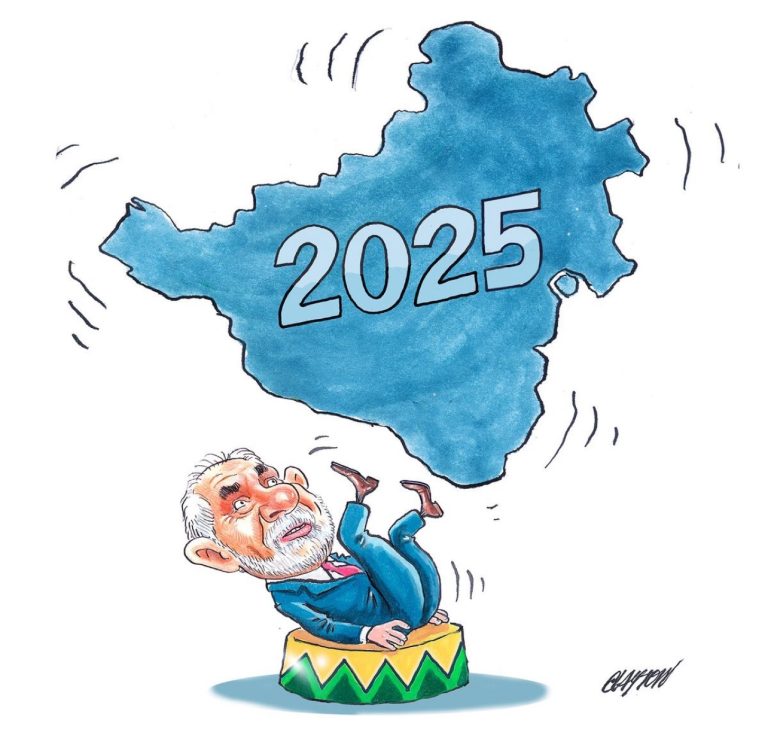The Truth Behind Brazil’s State-Owned Enterprise Crisis
By Hotspotnews
Brazil finds itself grappling with a staggering R$11.8 billion deficit in its state-owned enterprises (SOEs), the largest shortfall in 23 years according to data from the Banco Central do Brasil. This financial hemorrhage has sparked outrage among conservative circles, who see it as a glaring indictment of the current administration’s mismanagement. Yet, a closer look at the numbers—and a comparison with the Bolsonaro era—reveals a stark contrast that underscores the importance of sound economic stewardship over political ideology.
The 2025 Deficit: A Symptom of Failed Governance
The chart accompanying the recent X post from Alexandre Lopes paints a troubling picture. In 2025, SOEs are bleeding cash at an unprecedented rate, with a deficit that dwarfs previous years. This isn’t just a number—it’s a warning sign of inefficiency, corruption, and a lack of accountability that conservatives have long warned against when government overreach dominates. The current administration’s inability to stem this tide suggests a return to the bloated, politicized management of state enterprises that plagued Brazil before Bolsonaro’s tenure. Reports indicate that this deficit follows a R$7.2 billion loss in 2024, hinting at a worsening trend as reforms stall or, worse, exacerbate the problem with short-term fixes.
Conservatives argue this is no accident. The injection of political cronies into SOE leadership, coupled with a reluctance to privatize or streamline operations, has turned these entities into cash sinks rather than engines of growth. The Brazilian postal service, Correios, alone accounted for a significant chunk of last year’s losses, a clear example of an outdated monopoly failing under government control. This is the kind of outcome that free-market advocates predicted when the pendulum swung back toward leftist policies.
Bolsonaro’s Era: A Model of Fiscal Discipline
Contrast this with the Bolsonaro years, where the same chart shows surpluses or manageable deficits. From 2019 to 2022, SOEs posted gains, with a notable R$6.1 billion surplus in 2022. This wasn’t luck—it was the result of a deliberate shift toward reducing government interference and promoting private-sector efficiency. Bolsonaro’s administration pushed for management contracts and partial privatizations, aiming to break the cycle of dependency on public funds. While not perfect, this approach yielded tangible results, proving that conservative principles of limited government and market-driven solutions can work even in a country with a heavy state presence.
During Bolsonaro’s term, the focus was on accountability. State-owned enterprises were pressured to operate like businesses, not political fiefdoms. The data backs this up: deficits shrank, and in some years, SOEs contributed to the national coffers. This wasn’t about ideology for ideology’s sake—it was about pragmatism, a lesson the current government seems to have forgotten.
What’s Really Going On?
The R$11.8 billion deficit in 2025 isn’t just a financial figure; it’s a political statement. The current administration’s attempt to impose a “transition path” for SOEs—shifting them toward financial autonomy through management contracts—appears to be a reactive measure, not a proactive strategy. Conservatives see this as a desperate scramble to cover up years of neglect, where political loyalty trumped competence. The spike in losses suggests that initial costs of these reforms, or resistance to them, are hitting hard, while the benefits remain elusive.
Moreover, the timing raises eyebrows. With Bolsonaro facing legal battles and his supporters rallying, the deficit conveniently shifts focus away from his achievements and onto the current government’s failures. This isn’t to say Bolsonaro was flawless—his administration faced criticism for environmental policy and pandemic response—but on the fiscal front, the numbers don’t lie. The contrast between his tenure and today’s crisis is a testament to the power of conservative economic principles over the chaos of centralized control.
The Way Forward
Brazil can turn this around, but it requires a return to the fundamentals that worked under Bolsonaro: privatization where feasible, strict oversight, and a rejection of political patronage. The R$11.8 billion deficit is a wake-up call, a chance to reclaim the fiscal discipline that once stabilized SOEs. Conservatives must push for transparency, demand accountability, and resist the temptation to let state enterprises become tools of political gain. The data shows it’s possible—Brazil just needs the will to make it happen. As the saying goes, against facts, there are no arguments—and the facts favor a conservative approach.


